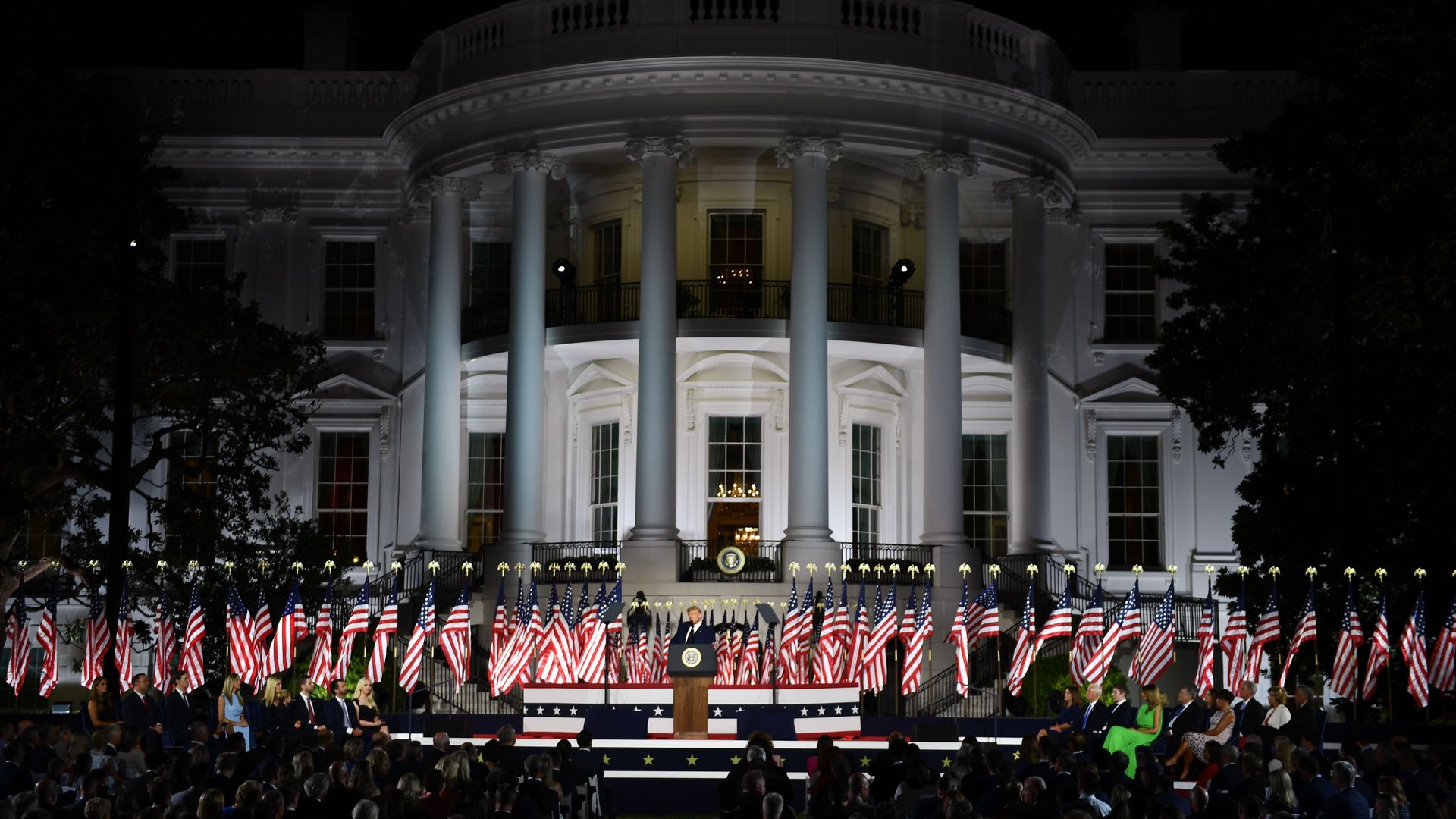Between the lines of Trump's RNC speech
Add Axios as your preferred source to
see more of our stories on Google.

Photo: Brendan Smialowski/AFP via Getty Images
After spending four years pushing away all but his hardest core, President Trump used the Republican National Convention to try to belatedly reel back big swaths of the electorate who like his policies but don't like him.
The state of play: The Trump campaign is gambling that even Americans who hate his style will ultimately vote on what they think affects them most directly.
- So while the Democratic convention focused on Biden's character and empathy, Republicans went heavy on hardline policy contrasts by trying to cast Biden as a risky leftist.
More than 1,500 guests — few with masks, even though the pandemic rages — sat shoulder-to-shoulder on white folding chairs last night as Trump audaciously delivered his acceptance speech on the White House's South Lawn.
- "Joe Biden's plan is not a solution to the virus, but rather it's a surrender to the virus," Trump said, falsely portraying Biden's vow to listen to scientists.
Then the president and his family basked onstage in a singalong of "God Bless the U.S.A.," as fireworks lit up "TRUMP" and "2020" over the Washington Monument, turning the most public of property into a political tableau.
- "Always remember: They are coming after me, because I am fighting for you," Trump said. "That’s what’s happening."
Trump summed up his view of the race with blunt brevity:
- "[T]he fact is, we are here and they are not."
- Signaling the tone with 67 days to Election Day, Trump used Biden's name 40 times during his 70-minute speech. Biden didn't use Trump's name once.
The four-night Republican convention had twin aims, officials tell Axios:
- Make Trump more palatable to suburbanites who hate his rhetoric but like some of his policies.
- Ratchet up the fear factor for the Biden-Harris ticket, mostly using riots and safety as hot buttons — "deadly sanctuary cities," and charges Biden would let in jihadis, take down the wall and turn criminals loose.
Parts of the convention were effective — including stories of personal empathy, and testimonies from Black allies like Herschel Walker, the former NFL star, who said: "I take it as a personal insult that people would think I've had a 37-year friendship with a racist."
The bottom line: All those moments were designed to create a permission structure for nervous suburbanites to vote for Trump despite possible stigma in their social circles, a Trump aide told Axios.
- But Trump advisers admit there was lots of contradictory messaging, such as hitting the Biden-backed 1994 crime bill as too harsh, while crowning Trump the candidate of law and order.
- And harping on rising violence in big cities, when Trump is in charge.

